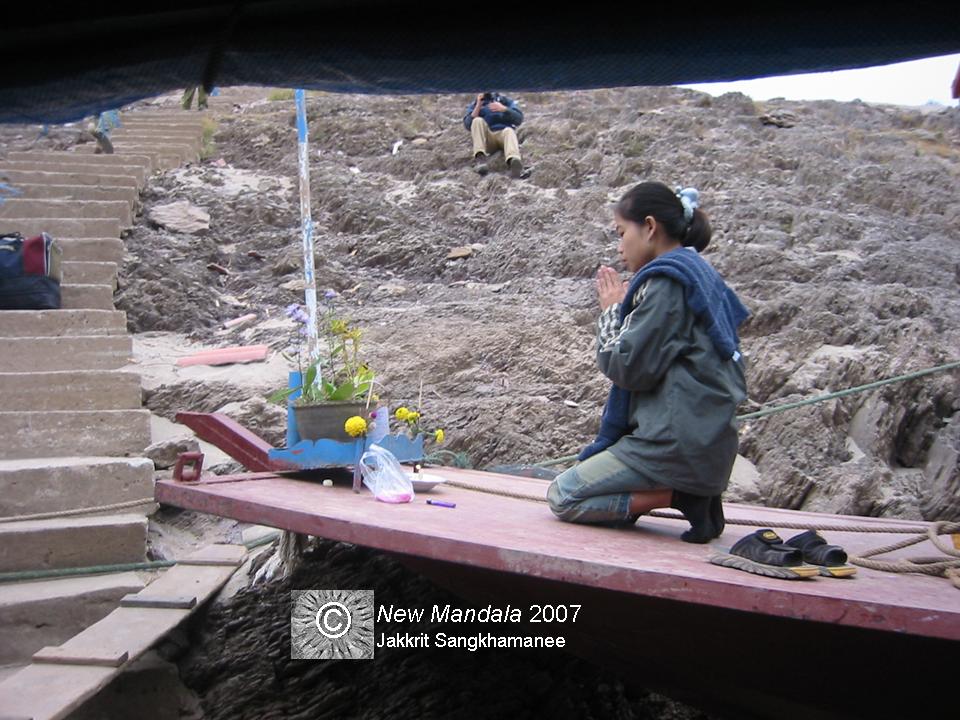Almost every morning before the boat engine was started by a male trader, the female traders devote a small, but important, amount of time to conducting a simple ritual of boat spirit worship. Small balls of sticky rice, or other kinds of food, and three joss sticks are the only two things needed for the pre-departure ceremony. The women traders grab any food that they prepare for breakfast, and flowers if any, and sit down right at the prow of the boat where the boat spirit house is located and light the joss sticks to perform a short ritual.
Throughout the world, people have spirits that protect their livelihoods. The spirits are varied from place to place and community to community, representing the diversity of culture and ideology in local contexts. The case of the worship of a boat spirit by the traders here signifies the different identity of the river traders from land-based people.
Performing spiritual practice is not the only way the traders express their identity in relation to the river. It can also be considered as a ‘negotiation’ of the holy nature of loss and gain in their business. One trader mentioned to me that a big food offering is made in expectation of a big profit. It was the first time I learned that one can negotiate the response of the spirits by offering them more than usual!
Besides the spirits of the boat, the traders also recognize that there are spirits of the river, rocks and rapids, as well as the forest and mountains, that help protect their expeditions and business. Approximately five kilometers before the boats coming from Chiang Khong reach the village of Pakbeng, woman traders usually get themselves ready as they and their crews will soon cruise pass the “Jao Mae Yaa Tao”. Guiding the cargo boats through an enormous, narrow gorge with a large rock in the shape of a kneeling old lady on the cliff overlooking the boat, the woman traders throw small balls of sticky rice as they say prayers to worship the spirit.
The Mekong river for the traders not only consists of physical things such as rapids, river banks, shoals and waves but it also entails social relations with people and cultures. The traders’ interaction with the Mekong goes well beyond the things and experiences they can obviously see. The spiritual aspect of nature plays a significant role in the construction of the traders’ identity in relation to the river. The spiritual relations of the long-distance river traders are articulated through the basic practices of ceremonies. They therefore interact with a riverscape that is layered with multiple perceptions of nature and livelihood.
For the full series of New Mandala posts on Mekong River traders, go to Golden Boat update 1, update 2, update 3, update 4, update 5, update 6, update 7 and update 8.
 Facebook
Facebook  Twitter
Twitter  Soundcloud
Soundcloud  Youtube
Youtube  Rss
Rss 